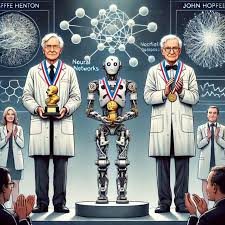
Mathematics, Physics, Chemistry, Biology
Mathematics, physics, chemistry, and biology are fundamental pillars of most university majors, whether in engineering, science, medicine, agriculture, computing, or even economics. The real challenges lie in the complexity of the concepts and the diversity of theoretical and practical branches of these subjects. This is where the Science Club Academy comes in, excelling at simplifying concepts and explaining them in an easy, practical, and gradual manner. First: Mathematics Subjects Taught in Various Specializations
A. Calculus & Analysis
Calculus 1, 2, 3
Advanced Mathematics
Applied Mathematics
Pure Math - Real Analysis, Special Functions
Topology
B. Algebra & Matrices
Algebra, Matrices, Math 1 and Math 2
C. Statistics, Probability, Numerical Methods
Probability 1 and 2
Principles & Applied Statistics
Regression Analysis, Time Series, Statistical Analysis
Numerical Methods
Complex Numbers Variables)
D. Differential Equations and Mathematical Modeling
Differential Equations
Mathematical Modeling
🔍 The role of the Science Club Academy:
The Academy provides visual explanations, step-by-step solved problems, and interactive tests to facilitate understanding of abstract concepts and difficult equations using programs such as MATLAB, Python, and GeoGebra.
Second: General and Advanced Physics Courses
A. General and Classical Physics
Physics 101 and 102
Mechanics, Analytical Mechanics
Statics & Dynamics
B. Modern and Advanced Physics
Modern, Atomic, and Astronomical Physics
Quantum Mechanics
C. Thermodynamics and Fluid Mechanics
Thermodynamics, Heat Transfer, Fluid Mechanics
Fundamentals of Thermal and Fluid Sciences
D. Electricity and Magnetism
Electrical Circuits 1 and 2
Electromagnetism, Microwave Engineering, Antennas, and Wave Propagation
⚡ Role of the Science Club Academy:
The Academy helps students understand physics concepts through everyday applications and simulation experiments, using tools such as PhET Interactive and Simulink, with exercises in solving problems and memorizing laws.
Third: Chemistry in its various forms
1. Physical Chemistry
Thermodynamics, quantum chemistry, kinetics, molecular structure, spectroscopy
2. Analytical Chemistry
Qualitative and quantitative analysis, instrumental analysis, environmental analysis, analytical statistical methods
3. Organic Chemistry
Nomenclature, reaction mechanisms, functional groups, stereochemistry, organometallic chemistry
4. Inorganic Chemistry
The periodic table, chemical bonding, coordination chemistry, solids, catalysis
5. Biochemistry
Proteins, nucleic acids, enzymes, biometabolism, biological laboratory techniques
🧪 The role of the Science Club Academy:
The Academy provides illustrative drawings, interactive videos, and simplified sequences to help understand chemical reactions, with scheduled explanations for each university major. It also provides comprehensive reviews before exams.
Fourth: Biology
Biology subjects are diverse and include:
Cell Biology
Genetics and Genetic Information
Physiology and Anatomy
Microbiology
Immunology
Ecology and Molecular Biology
Botany and Zoology
Evolution and Systems Biology
🔍 The role of the Science Club Academy in simplifying biology:
The Academy provides visual explanations and concept maps covering complex biological processes such as cell division, metabolism, and gene function, in addition to interactive videos and 3D simulations of body systems and microorganisms. This approach facilitates understanding and significantly increases student achievement.
Mathematics, physics, chemistry, and biology are pillars of modern science. The difficulty of these subjects lies in the fine details and density of information. Here, the Science Club Academy stands out as a distinguished educational platform that provides explanations in a simplified, interactive, and straightforward manner, making science more enjoyable and easier to understand for all college students.